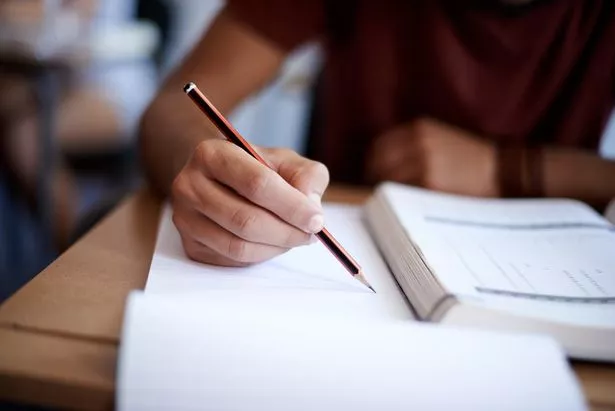A Level study leave usually starts when the curriculum has been covered and all that’s left is revision. The exact start date can vary depending on the school. Some students may start their study leave around mid-May.
However, it’s important to note that this can change based on factors like your school’s policy and your exam schedule. During study leave, students focus on revising for their exams and only need to come to school for the exams.
It’s a necessary time for students to prepare for their A Level exams, so make sure to check with your school for the exact dates.
What Are the Purposes of Study Leave?

The main aim of study leave is to create an environment that is conducive to focused learning.
It gives students or employees the opportunity to focus on their studies, away from the usual distractions of school or work.
In a professional context, study leave supports employees in their professional development, providing them with opportunities to enhance their skills and knowledge.
What Are The Advantages of Study Leave?
Better Focus: Study leave provides a distraction-free environment, leading to improved focus and productivity.
Personalized Learning: It allows individuals to design their study schedule based on their learning pace and style.
Improved Performance: Dedicated time for learning and revision can lead to improved academic or job performance.
Employee Retention: In a professional setting, offering study leave can help attract and retain top talent, showing the organization’s commitment to employee development.
Continuous Learning: It encourages a culture of continuous learning and growth, leading to increased motivation and engagement.
What Are the Factors that can influence the start date?
The commencement of A Level study leave can be influenced by a variety of factors
Each school may have its own set of rules regarding the initiation of study leave. Some might begin as early as mid-May, while others might opt for a later date.
The schedule of exams can also play a role in determining the start of study leave. If exams are scheduled earlier, study leave might commence sooner.
The point at which the course curriculum is completed can affect the start date of study leave. The faster the course is covered, the earlier the study leave might begin.
Occasionally, external situations like pandemic-related closures can have an impact on the start date of study leave.
How to Make the Most of Your A Level Study Leave?
A Level study leave is a critical period that allows students to focus on revising their course material. It’s a time when students can consolidate their learning and prepare for their exams. Here are some expanded tips and strategies to make the most of this period
Start Early: Begin your revision as early as possible. This allows you to pace your studies and avoid the stress of last-minute cramming.
Create a Study Plan: A well-structured study plan can help you manage your time effectively. It allows you to allocate specific time slots for each subject, ensuring that all topics are covered.
Stay Motivated: Keep your end goal in mind to stay motivated throughout your study leave. Remember why you’re studying and what you’re working towards.
Be Effective: Use effective study methods that engage multiple ways of learning. This could include techniques like flashcards, mind maps, and practice questions.
Stay Positive: Maintain a positive attitude towards your studies. Believe in your abilities and remind yourself that you can achieve your goals.
Effective Studying Strategies During Study Leave
Effective studying requires a combination of the right strategies and a conducive environment. Here are some expanded tips
Avoid Distractions: Create a dedicated study space that’s free from distractions. This could be a quiet room in your house or a local library.
Take Breaks: For every 30 minutes you study, take a short 10-15 minute break. This helps to recharge your brain and improve your focus.
Use a Revision Plan: A good revision timetable can help you structure and focus your revision. It ensures that you allocate enough time for each subject.
Ask for Help: If you’re struggling with a topic, don’t hesitate to seek help. This could be from a teacher, a tutor, or even a classmate.
The Importance of a Balanced Schedule During Study Leave
Maintaining a balanced schedule during study leave is crucial for several reasons
Enhances Focus: A balanced schedule helps you manage your time effectively, enhancing your focus on your studies. It ensures that you’re not spending too much time on one subject at the expense of others.
Prevents Burnout: Regular breaks prevent burnout and help maintain both your mental and physical health. It’s important to take time out to relax and recharge.
Promotes Healthy Lifestyle: A balanced schedule includes time for exercise, rest, and a healthy diet. These factors can significantly impact your ability to focus and retain information.
Improves Performance: A balanced schedule can lead to improved academic performance. By ensuring that all subjects are given equal attention, you can improve your understanding and recall of the material.
What to Do If You’re Struggling During Study Leave?

If you’re finding it challenging to study during your study leave, remember that it’s a common experience and there are strategies to help you navigate this period:
Identify the Issue: The first step is to understand what’s causing your struggle. It could be a lack of motivation, constant distractions, or difficulty in understanding the course material. Once you’ve identified the problem, you can take steps to address it.
Develop a Study Plan: A well-structured study plan can help you manage your time effectively. It allows you to allocate specific time slots for each subject, ensuring that all topics are covered.
Make Learning Engaging: Try to make your learning process interesting. You could relate the material to real-life scenarios or use interactive learning tools.
Take Regular Breaks: Continuous studying can lead to fatigue and decreased productivity. Taking short breaks can help rejuvenate your mind and improve focus.
Maintain a Healthy Lifestyle: Your physical health can significantly impact your ability to study. Ensure you’re eating a balanced diet, getting enough sleep, and staying hydrated.
Resources and Support for Students
If you’re struggling during study leave, there are several resources available to help you
Tutors: Personal tutors can provide one-on-one assistance and help you understand complex topics.
Study Groups: Joining study groups can make learning more interactive and enjoyable. It also provides a platform to discuss and clarify doubts.
Online Resources: There are numerous online platforms that offer study materials and interactive learning tools. Websites like Khan Academy, Coursera, and Quizlet can be very helpful.
School Resources: Schools often provide resources like counseling services, study workshops, and additional classes. Don’t hesitate to use these resources.
Encouragement to Seek Help
If you’re finding it difficult to cope during study leave, it’s important to seek help. Whether it’s from a teacher, a tutor, or a peer, don’t hesitate to ask for assistance.
Remember, seeking help is not a sign of weakness, but a step towards overcoming challenges. There are numerous resources available to help you, so make sure to utilize them. You’re not alone in this journey, and there are many people ready to support you.
FAQ
How long is study leave UK?
Employees may be entitled to request time off for training or study. To qualify, they must be classified as an employee, have been employed for at least 26 weeks, and the training must help them perform their job better. Also, the organisation must employ at least 250 people.
Can international students do A levels in UK?
Yes, international students are allowed to study UK A-Levels. All types of A-Levels, whether international or UK-specific, can be pursued by anyone, regardless of their location.
How many hours study does a GCSE take?
It’s generally recommended that a single GCSE requires around 120 hours of study. However, this can vary depending on the student’s learning speed and the difficulty of the subject.
Is 3 months enough to revise for GCSE?
Yes, typically, a revision period of 3 months is considered sufficient to prepare for GCSE exams.
Is 2 months enough for GCSE?
Starting revision 2 months prior to the GCSE exams is also deemed acceptable. However, this would necessitate consistent and focused revision.
How long should I revise for A levels?
It’s suggested that students revise for about two hours daily in the month leading up to the exam. The exact duration can vary depending on the individual’s study habits and the subjects being revised.
Is 50 days enough to revise for GCSE?
While there’s no specific guideline for 50 days, it’s generally advised to start revision at least a month before the GCSE exams.
How do you get a 9 in GCSE maths?
To achieve a grade 9 in GCSE Maths, students need to combine consistent revision, understanding of the exam structure, practice of past papers, focus on weak areas, seeking help when needed, and good exam techniques.
Final words
Knowing when A Level study leave begins is crucial for students preparing for exams. This dedicated time is an opportunity to concentrate on effective exam preparation, reducing stress and improving performance. Keep in mind that the starting date can vary, so it’s important to follow your school’s guidelines.
As you enter this study leave period, maximize its benefits by using proven study techniques, managing your time efficiently, and seeking help if necessary. Approach this time with a positive outlook, recognizing that your efforts during study leave can greatly impact your success in A Level exams. Wishing you the best of luck!

